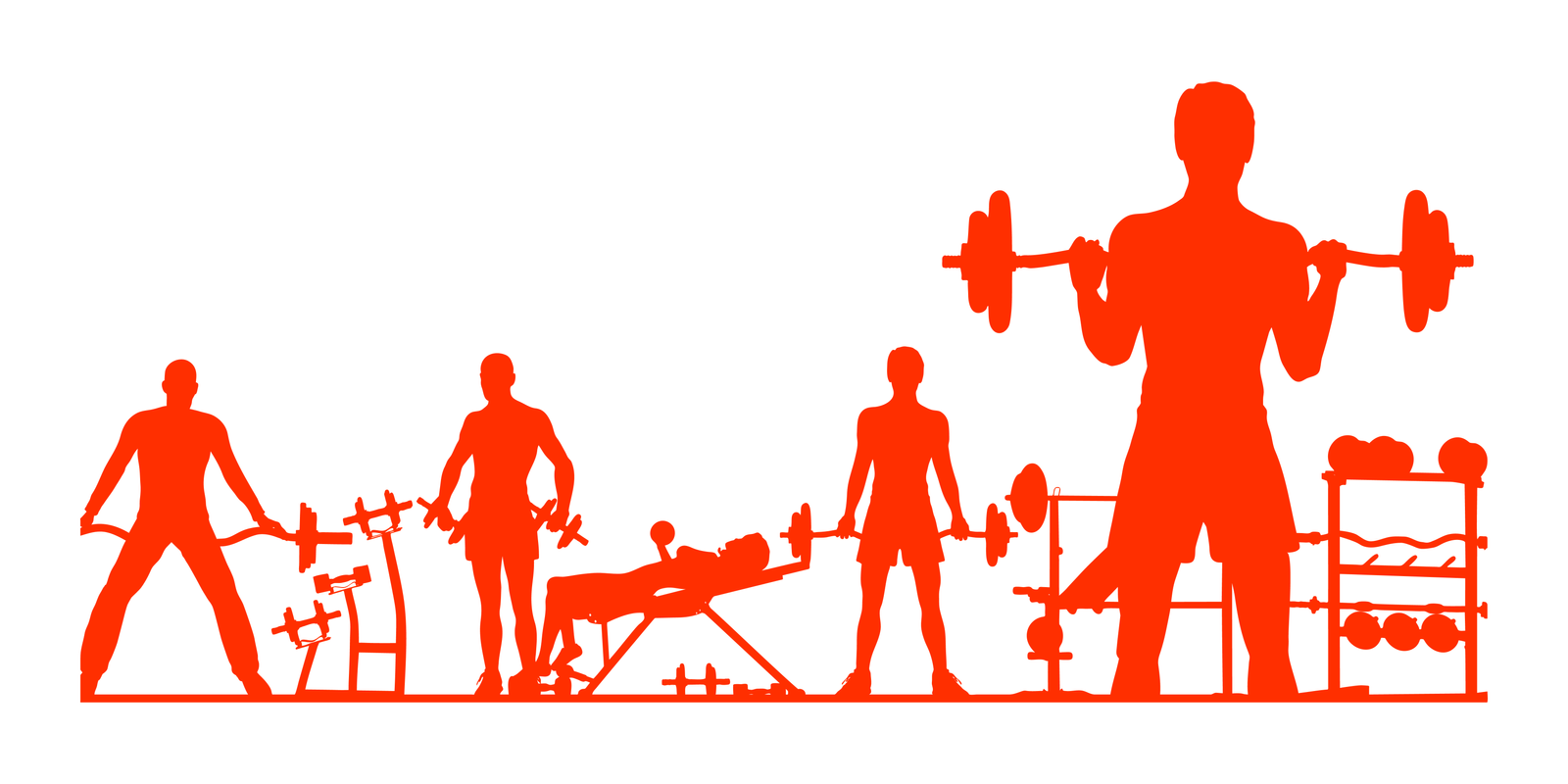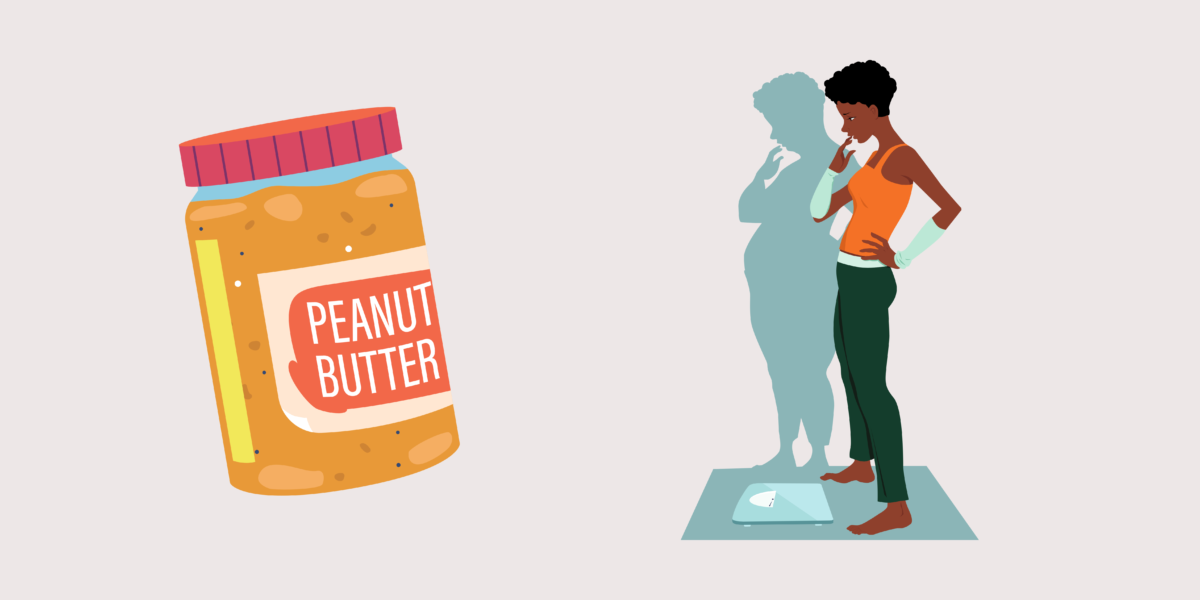
Fat Loss or Weight Loss: Which is Better and Why?
Weight loss and fat loss aren’t the same. Though both the terms – weight loss and fat loss – are often used interchangeably, they have different effects on your body and health. If you are looking for answers to:
“What’s the difference between weight loss and fat loss?”
“Should I lose fat or weight?”
“How do I know if I am losing weight or fat?”
Then this article is for you and it provides evidence-based responses to your questions in a simple manner. But first things first, let us try and differentiate between weight loss and fat loss.
What is the Difference Between Fat Loss and Weight Loss?
To understand the difference between fat loss and weight loss better, let’s discuss different components of our body weight. Our body weight is mainly include, water, muscles, and fats.
1. Fat mass
Fat mass refers to the weight of fats in your body. When we consume the same number of calories we burn, all the calories are converted into energy.
But if we consume more than we burn, excess calories convert to fats and get stored in tissues and layers below the skin.
If this continues for a longer time, you are likely to gain weight.
Not all the fat in the body is harmful. There are healthy fats as well. These are obtained from vegetable oils, avocados, nuts, fatty fishes, and are required for the proper functioning of the body.
Then, there are also unhealthy fats that come from processed, packaged, and junk foods. During weight loss, the target is to get rid of unhealthy extra fat and not the healthy one.
2. Muscle Mass
Lean body mass or muscle mass are terms to refer to the weight of muscles in the body. Human beings have 600 muscles which make up 40% of the total body weight.
3. Water Mass
All of us know our body is made up of 60-75% water. Water is important for mineral requirements, metabolic reactions, and maintaining osmotic balance in the body.
This 60-75% of water contributes to the overall weight of the body and is known as water mass.
Let’s define fat loss and weight loss now:
Fat loss is the process of losing unhealthy excess fats from the body while keeping some water and muscle mass unaffected.
Weight loss is the process of losing overall body weight that includes water, muscles, and fats.
Weight loss is more than just getting slim. If not done right, weight loss can have negative effects.
The decrease in your belly fat must not be followed by a decrease in your health status.
If you want to lose weight healthily, it’s fat loss (and not weight loss) that you should be aiming at.
Why is Fat Loss Better than Weight Loss?
Fat loss is healthier and better than complete weight loss. Fat loss retains the water and muscle density while flushing away harmful fats from the body.
Often, when people try to lose weight, their muscle and water mass also decreases along with the fats.
Losing weight from muscle and water is not a good thing. We should only lose fats and not the entire weight.
“But why?”
Scroll to the next section to find out.
Why Should You Preserve Muscle Mass?
A study finds that the overall reduction in body weight leads to serious health implications in the long run, such as:
- lowered metabolism
- fatigue
- decrease in neuro-muscular function
- potential effects on emotion and psychological state
- increased risk of injury
On the other hand, good muscle mass:
- reduces the risk of cardiovascular diseases and promotes heart health (as stated by the Journal of cardiopulmonary rehabilitation and prevention)
- regulates blood sugar levels and help manage diabetes (as stated by a study in 2013)
- improves metabolism and keeps away metabolic diseases (as stated by the American Journal of Physiology, Endocrinology, and Metabolism)
Further, studies find that your muscle mass starts degrading after the age of 30. The rate of degradation is 3 to 5% every 10 years. This decrease in muscle mass triggers many disorders in adult people.
Why lose muscle mass early due to inappropriate weight loss practices and invite more problems?
Therefore, you should follow healthy weight loss habits to preserve as much muscle mass as possible.
Why Should You Preserve Water Mass?
Water is very important for body processes.
A well-hydrated person has proper digestion, is more active, and keeps away many diseases. You should always maintain good water levels in your body.
Therefore, a successful goal should be to lose fat and not overall body weight. It is essential to maintain muscle mass and water mass for the body to function optimally in the long run.
How To Know if You Are Losing Fat or Losing Weight?
The common weight measuring machines don’t differentiate between weight loss and fat loss. If the needle is pointing at a lower number, you can’t predict whether you are losing fat or overall weight.
However, there are other advanced instruments like Body Fat Analyzers and Skinfold Calipers which can help you figure out what exactly you are losing – fat or weight – and by how much.
Although both of these instruments are available online, most people might require certified fitness professionals or good technical knowledge to get accurate results.
How to lose fat while maintaining your muscle mass Intact?
By now, we are familiar with the fact that healthy weight loss practice is the one that expels out excess fats while keeping the muscle mass, some water weight, and healthy fat amounts unaffected.
Wondering what can be done to achieve weight loss goals the right way? Here are research-based methods for healthily losing weight.
1. Eating the Right Diet
You can tick a perfect balance between losing unhealthy fats and keeping healthy muscle mass. What is needed is the right diet plan.
Eat foods that provide you with more nutrition even in smaller portion sizes. The ones that contain fewer calories, fewer carbs, more fibers, more proteins.
When it comes to carbs, some people have the opinion of restricting or quitting them to lose weight. This is not the right thing.
Our bodies necessarily need carbohydrates for energy. Therefore, not ‘quitting’, but ‘selecting’ the right kind or amount of carbs is the key.
Just like healthy and unhealthy fats, carbs come with dual versions – healthy and unhealthy.
The healthy version – complex carbs are full of fibers and must be consumed in suggested portions.
The unhealthy version – refined carbs contain no fibers or nutritional value and must be avoided.
We need to quit unhealthy carbs, not healthy ones.
You can shed excess calories without depriving your body of necessary nutrients and energy needs.
2. Eating in Right Proportions
Knowing what to eat is important. Knowing how much to eat is even more important.
It is recommended to have a diet plan that includes the ‘right diet trio’- a diet which is,
- Low in carbs
- High in fibers
- Moderate to high in proteins (depending on your goal)
The above three are the components of a rightly balanced weight loss diet.
A 2018 research confirms that popular weight-loss diets which suggest low carbohydrate and high-fiber diets result in overall weight loss, and not fat loss alone.
Whereas, weight loss plans that include an adequate protein diet along with a low-carb and high-fiber menu, lead to more reduction in fat loss than lean body mass altogether.
In another study, increasing protein intake from 15% to 30% of calories made overweight women eat 441 fewer calories each day without restricting anything else.
Hence, eating a diet that couples moderate amounts of proteins with restricted calories, is more effective than having a diet with reduced carbs and calories alone.
3. Exercising Regularly
Regular exercise is a proven way of maintaining muscle mass in your body. Studies have validated the importance of cardio exercises – walking, jogging, dancing, cycling, and swimming, etc.; for weight loss.
Another research confirms the positive effects of resistance exercises- weight lifting, squats, and lunges, in older adults with obesity. Resistance training promotes strength and stops muscle mass loss.
Further, researchers have also put forth an important fact.
When a person doing regular exercises consumes a diet that is low in calories, contains healthy carbs, more fibers, and adequate proteins; the fats are reduced significantly while maintaining a good lean muscle mass.
And, this is what we aim for!
Winding-up
Weight loss can help avoid obesity, cardiovascular problems, diabetes, and many other diseases.
However, losing overall weight can also mean losing water and muscles, which is not good. One must maintain lean body mass for strength, stamina, and proper functioning of the body.
Taking informed dietary measures and exercising can together help preserve muscle mass and increase fat loss in the right way.





No Comments